Humanitarian Project supported by International Planned Parenthood Federation
Our endeavour to deliver essential SRH in disaster situations
Emergencies whether caused by natural disasters, conflict, or displacement often have the harshest impact on the most vulnerable populations. The Humanitarian Project by Family Planning Association of India is designed to provide rapid, rights-based, and inclusive support to communities affected by crises.
We believe that access to essential services, especially health, protection, and dignity, is not just necessary during emergencies it is a human right.
Poor and socially weaker segments of the population are worst hit by disasters. Within the vulnerable groups, women, children – especially women rendered destitute, adolescent girls, children orphaned because of disasters, elderly persons and differently-abled persons are exposed to higher risks. India’s exposure to severe natural calamities in recent times e.g., Super cyclone in Odisha, Cyclone Fani, Super cyclone Amphan, and Floods in Tamil Nadu and Kerala underscore the need to adopt a multi-dimensional, integrated endeavour to manage the disaster situations.
FPA India is implementing the SPRINT Humanitarian project in 12 branches in 11 States. The project focuses on improving health outcomes of crisis-affected populations by reducing preventable sexual and reproductive health morbidity and mortality. Build the capacity of FPAI staff to deliver lifesaving saving approach i.e. Minimum Initial Service package for deliver sexual and reproductive health services in crisis and post-crisis. Support to provide advocacy to create an enabling environment by strengthening the capacity of humanitarian workers.
FPA India is implementing this project through its branches located in Ahmedabad, Odisha, West Bengal, Tamil Nadu, Karnataka, Jammu & Kashmir, Kerala, Jharkhand, Gujarat, Maharashtra, Nagaland, and Haryana.
Emergency Response & Relief
- Sexual and Reproductive Health (SRH) in Emergencies
Through the implementation of the Minimum Initial Service Package (MISP), we ensure life-saving SRH services, such as maternal health care, contraception, prevention of sexual and gender-based violence (SGBV), and HIV/STI prevention through Counseling, Consultation Management, Diagnostic Investigation, Preventive care, Establish a referral network for other supportive services.
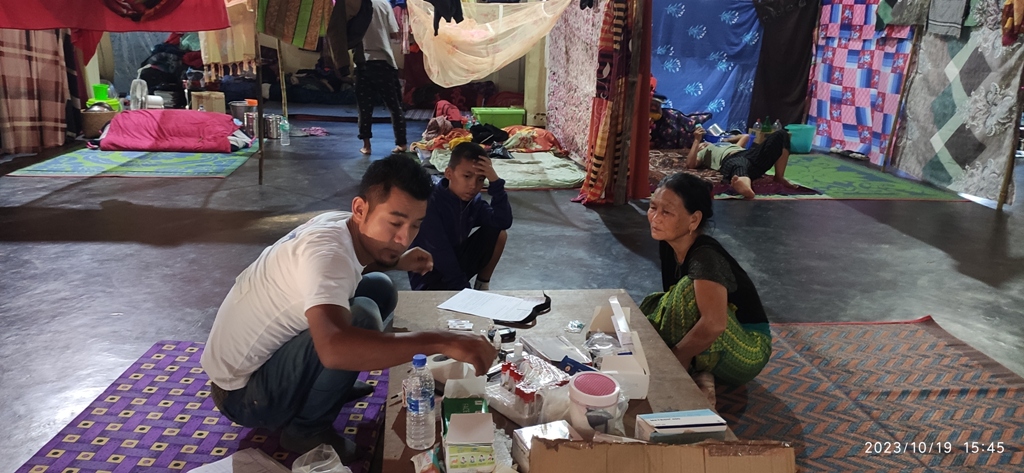
- Capacity Building
Effective humanitarian response relies significantly on the skills, knowledge, and coordination of all stakeholders involved. Recognizing this, our humanitarian project prioritizes capacity building as a fundamental strategy to strengthen the capabilities of individuals, organizations, and communities. This ensures they are better prepared to anticipate, respond to, and recover from emergencies efficiently and sustainably.
Through targeted training programs, workshops, and collaborative exercises, we empower healthcare workers, community leaders, disaster response teams, and partner organizations with the tools and expertise needed to deliver timely and effective assistance. By fostering local leadership and enhancing institutional coordination, our capacity-building efforts contribute to resilient and locally led humanitarian responses.
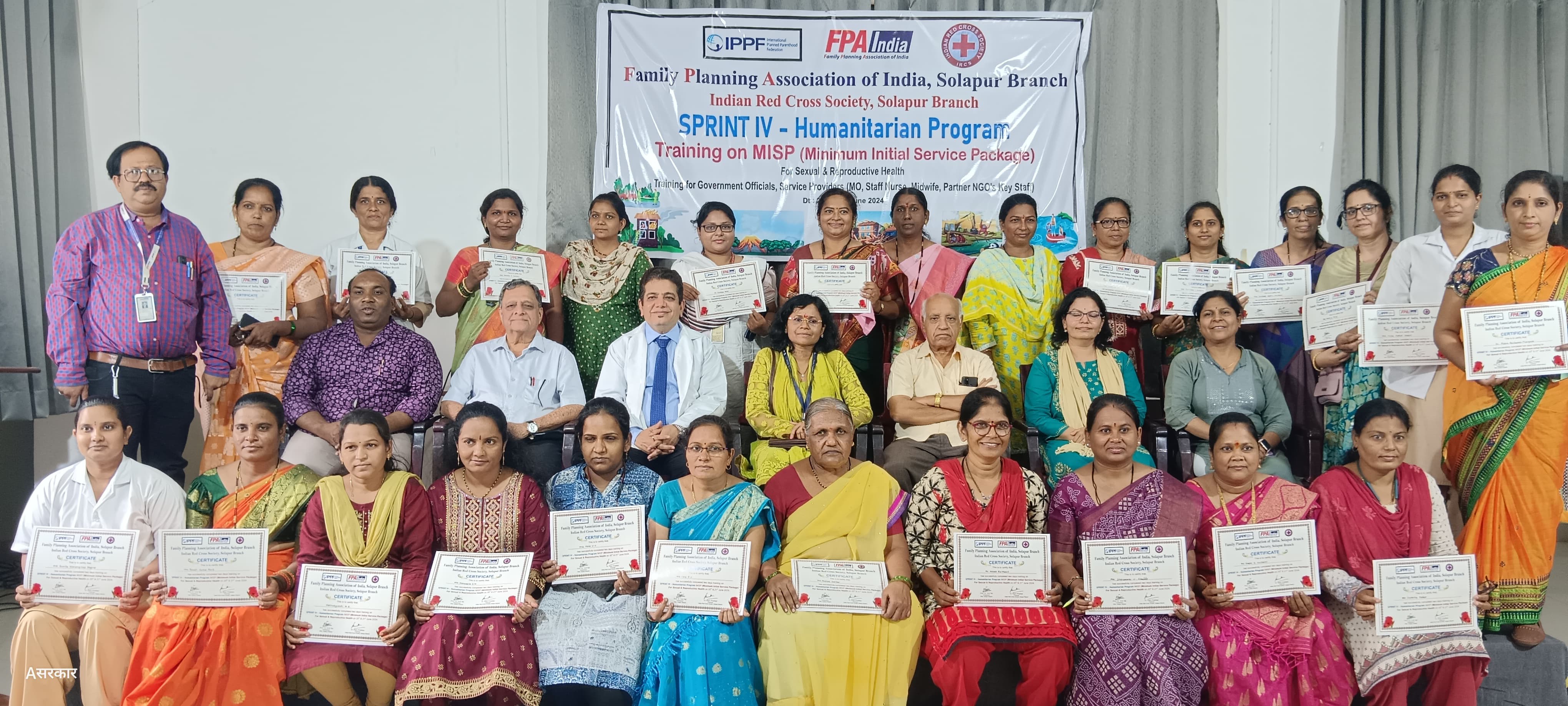
- Advocacy and Policy Engagement
We work closely with disaster management authorities and health authorities to mainstream SRH into humanitarian policies and state disaster management plans.
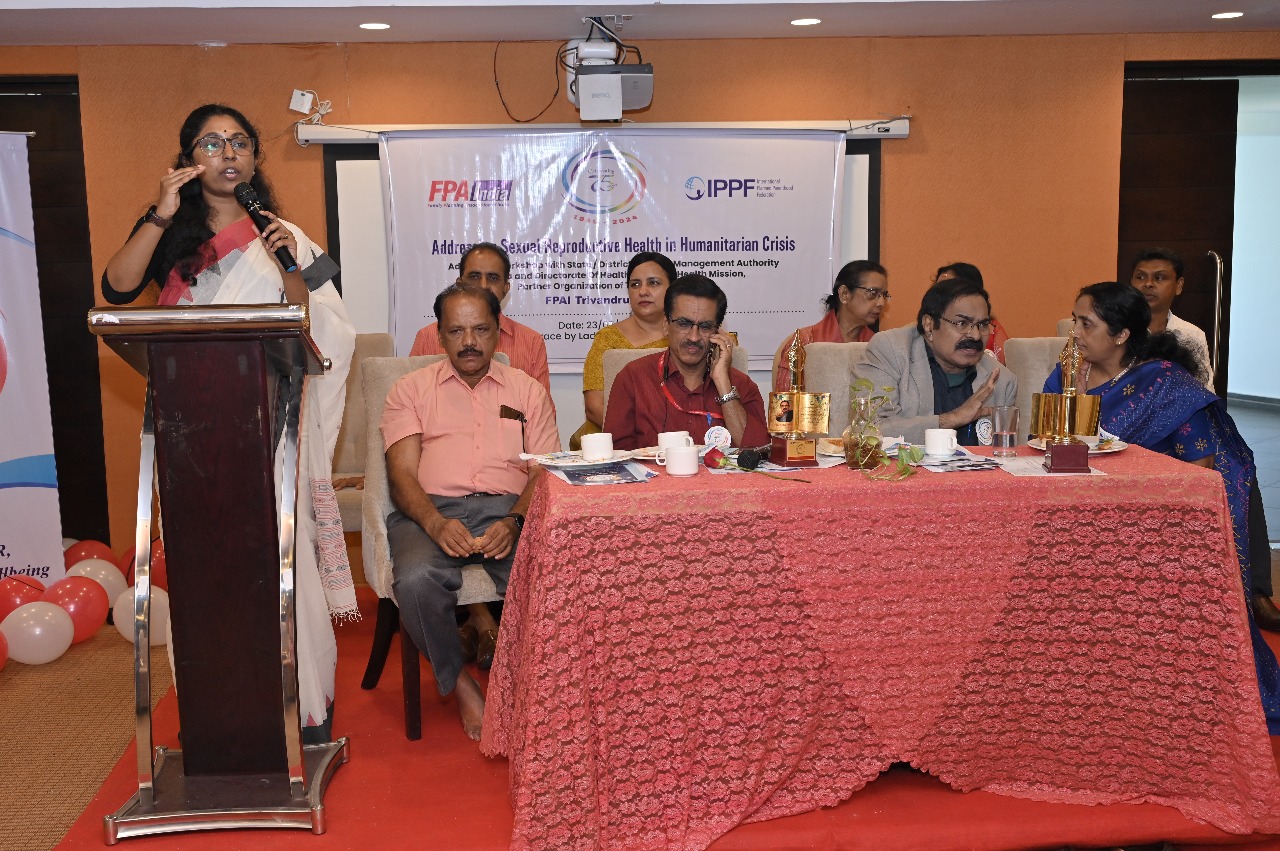
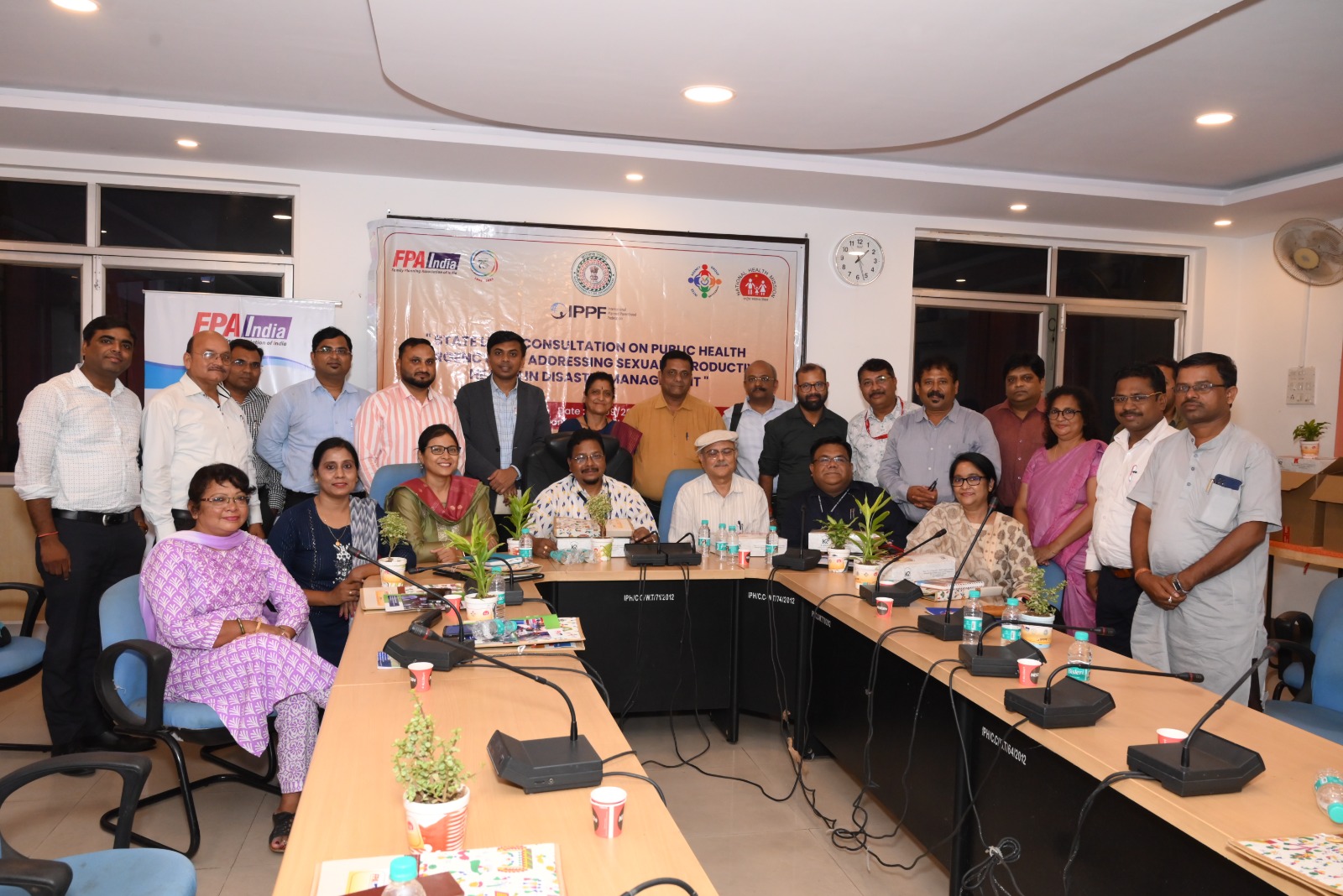
The Critical Role of SRH Services in Humanitarian settings
- In crises, access to basic health services often disappears
- Women and girls face increased risks of sexual violence and unsafe pregnancies
- Rape and other forms of sexual violence
- Early, child, and forced marriage
- Human Trafficking
- Unintended pregnancy
- Unsafe abortion
- Complications during pregnancy and delivery
- STI and HIV infection
- Local systems are often under-prepared or under-resourced.
Our project fills these critical gaps by bringing life-saving services directly to those who need them most safely, quickly, and with dignity.
MISP & general health services delivered
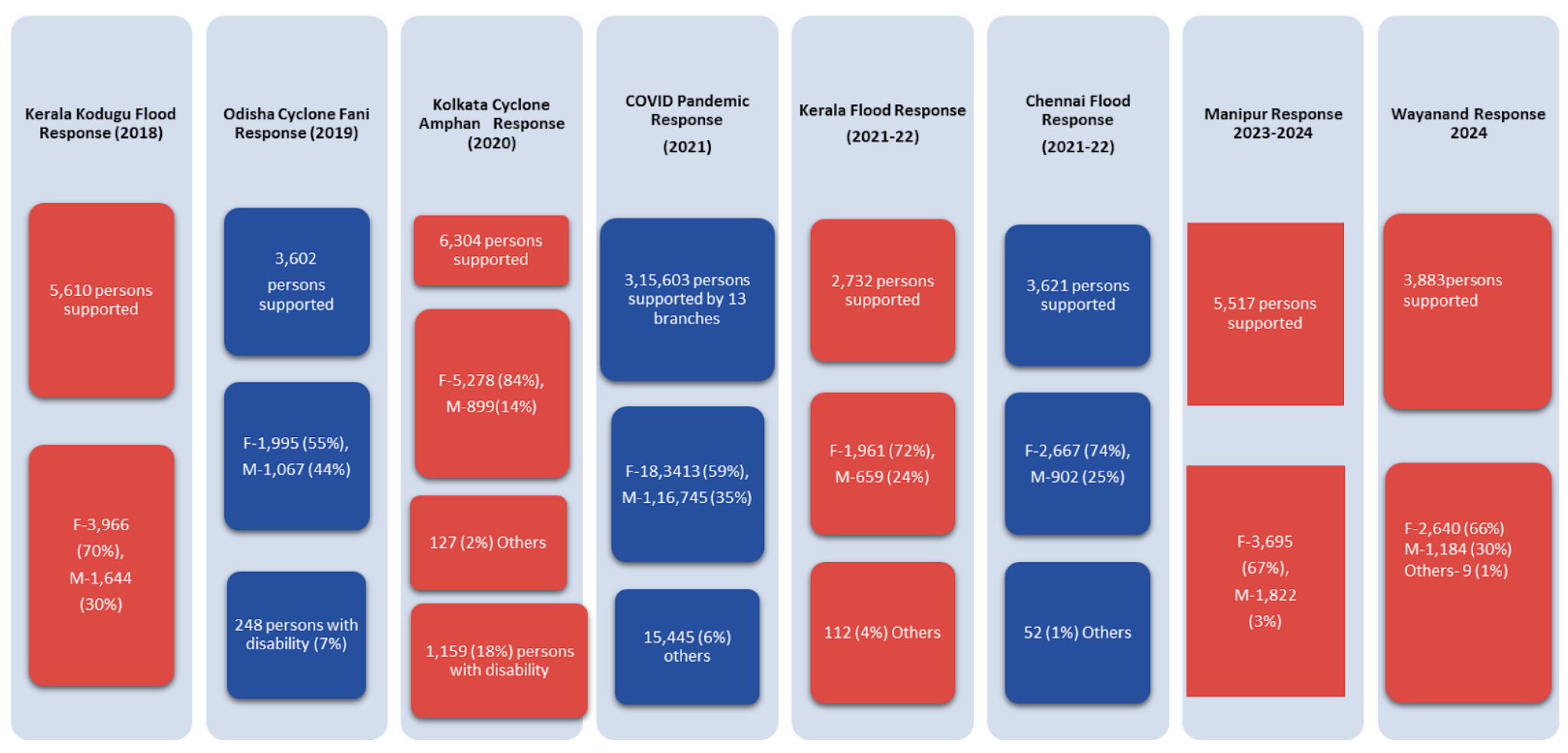
Building Capacity to Respond in Humanitarian Crises
- A total of 2,860 participants received MISP training, including FPA India staff, government service providers, partner organization representatives, volunteers, and staff from associated clinics
- A total of 947 participants received training on Sexual and Gender-Based Violence (SGBV), including FPA India staff, government service providers, representatives from partner organizations, volunteers, and personnel from associated clinics.
- A total 41 participants received training on Adolescent sexual reproductive health in emergencies for program officer, counsellor and youth volunteer of FPA India.
- A communication and media sensitization workshop was conducted for FPA India Branch Managers and youth volunteers to strengthen their capacity in addressing Sexual and Reproductive Health (SRH) issues during humanitarian crises.
- Implementing Branches organized media meets to highlight FPA India’s commitment to delivering expert services, particularly the Minimum Initial Service Package (MISP) for SRH, during humanitarian emergencies.
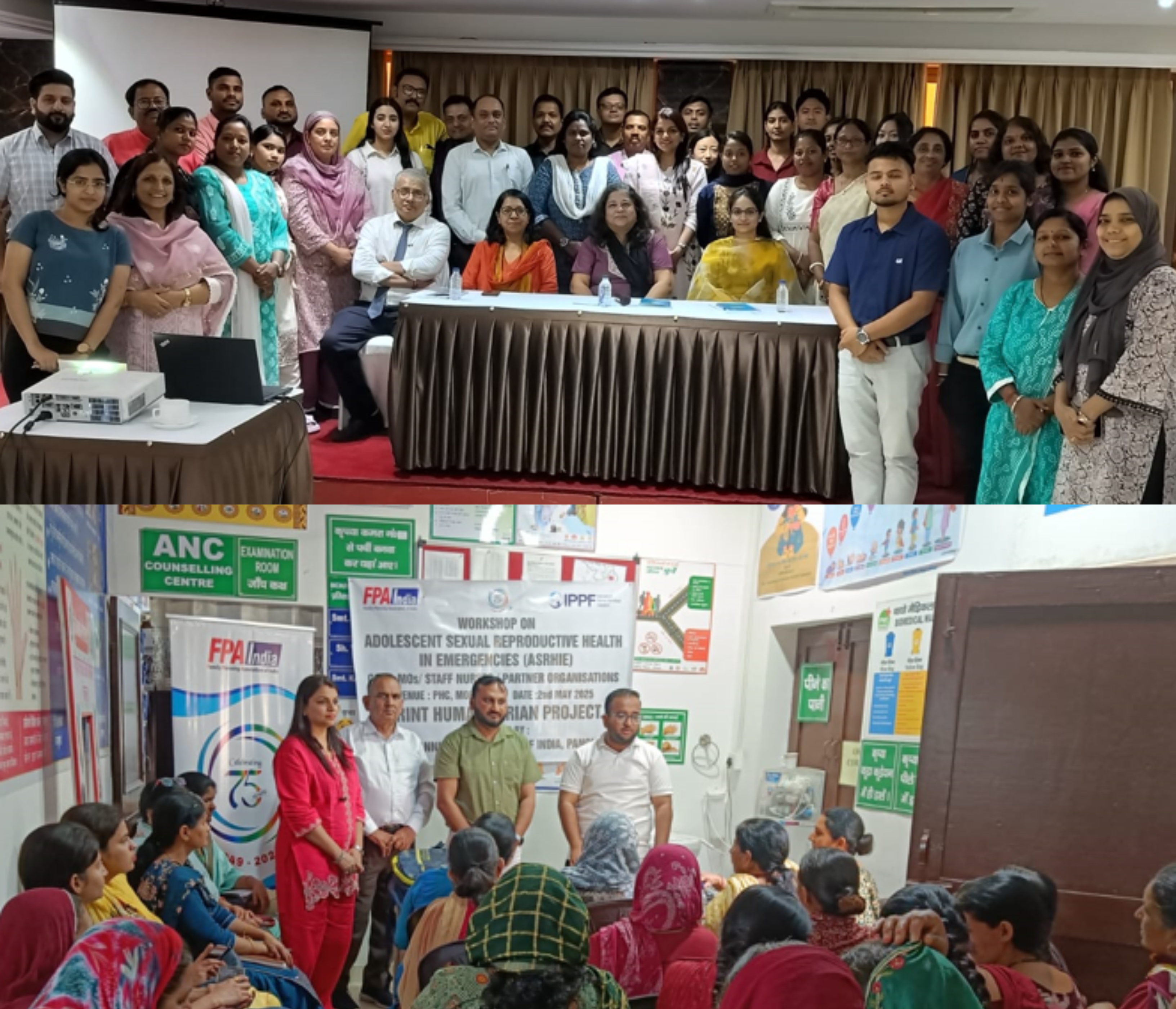
Partnerships strengthened with government agencies and local NGOs
Since the project inception in 2022, we have actively engaged in advocacy efforts to integrate the Minimum Initial Service Package (MISP) into humanitarian policies and plans. These efforts are being undertaken in coordination with the SDMA/DDMA and health authorities at both district and state levels.
As part of the SPRINT project, the FPA India Solapur Branch has delivered a series of trainings to government service providers and partner organizations on critical topics such as the Minimum Initial Service Package (MISP), Sexual and Gender-Based Violence (SGBV), and Adolescent Sexual and Reproductive Health in Emergencies (ASRHiE). In collaboration with government agencies, the branch also organized joint events to mark key occasions like World Humanitarian Day, the International Day for Disaster Risk Reduction, and International Safe Abortion Day.
Our branches have established formal and informal partnerships with 56 organizations during the preparedness phase, which will support humanitarian response.
